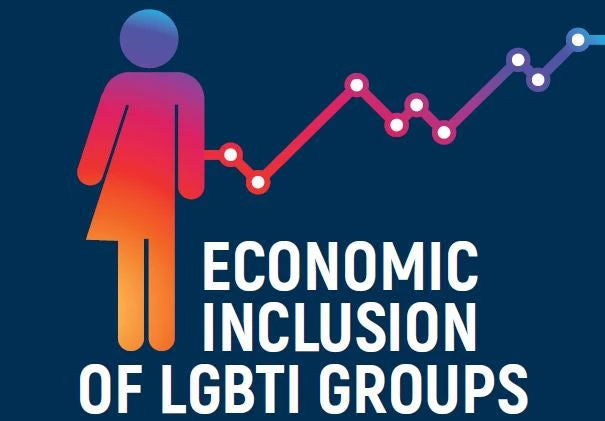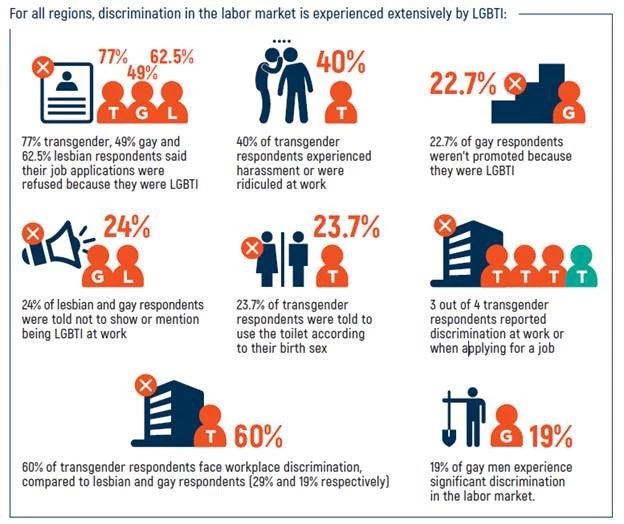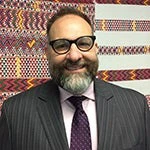
Tomorrow is the International Day against Homophobia, Transphobia, and Biphobia. This year, the global theme for this important day is family. Family is vital for all of us, it is what we care about first and foremost.
Ideally, our family accepts and supports us, nurtures us with life skills, and helps us seize social and economic opportunities. Whether we are straight or lesbian, gay, bisexual, transgender, or intersex (LGBTI), we depend on our families’ love and support. Unfortunately, for LGBTI people, their family is too often a source of hostility or violence, of pressure to conform to patriarchal norms, or of flat-out exclusion from family resources.
In some societies, LGBTI individuals who start their own families receive legal and societal protection. In many countries, however, laws and stigma constrain the terms by which LGBTI people have children, adopt, and live together.
On this day, let us ask: what do we know about discrimination of the LGBTI community, and how can we together help foster their inclusion in society and improve LGBTI lives? How do can we stop discrimination and advance LGBTI rights and inclusion?
Thailand is in the vanguard in taking a critical step: systematically gathering and analyzing data to raise awareness and help shape policy.
Through a partnership between the Royal Thai Government, the World Bank Group, the Faculty of Learning Sciences and Education at the Thammasat University, social change agency Love Frankie, and Thai LGBTI civil society networks, researchers collected the opinions of 3,502 LGBTI and non-LGBTI Thais in Bangkok and both rural and urban areas in the North, Northeast, South, and Central provinces. The life experiences of 2,302 LGBTI people were compared with those of 1,200 non-LGBTI people in Thailand.
The research – the first to have large samples of respondents to make the results statistically meaningful – led to this conclusion: the LGBTI community suffers from unequal opportunities and unabashed discrimination. LGBTI people face exclusion in many areas of life – including in education and health care, in getting credit and finance (including life and health insurance), in their access to housing, in the job market and at work.
45 percent of all surveyed LGBTI people report not being successful in job applications because of their LGBTI identity, and 53 percent report experiencing emotional problems such as depression, anxiety or frustration as a direct result of such discrimination. Almost half of all LGBTI people in the survey report not being able to show their real abilities in the workplace.
It is important to note that not all LGBTI Thais suffer equally. Transgender women and men suffer most, by far, and lesbian and bisexual women experience more discrimination and exclusion than gay and bisexual men. The research brought to light heart-wrenching accounts of rejection by peers, parents, family and other members of society.

The news is not all bad, however. Family and friends are the first points of contact where they report acts of discrimination, rather than formal complaint mechanisms or law enforcement agencies, suggesting that many are accepted and loved for who they are. As one 31 year-old transgender woman shared:
“My parents are teachers…Being their child, they loved me, to begin with, loved me a lot and accepted me. They could see from the beginning that though I was born as a boy, I had a petite physique… I’ve never had any issues about that with my parents, they’ve always fully accepted me. I think I was lucky in that sense.”
Lucky indeed. And fortunate to live in Thailand, where society is beginning to ask important questions about the experiences of its marginalized citizens – including lesbian, gay, bi, trans, and intersex – as well as have anti-discrimination laws that protect LGBTI people despite the survey showing that only 30 percent of LGBTI people are aware of such laws.
Much remains to be done to raise awareness, implement the laws, and advance LGBTI inclusion across the country. As awareness improves, as government policies and programs are implemented to protect and include LGBTI people in school and at work, and in all aspects of life, the reward will be a better educated and productive work force, and a better-off and happier society as a whole.
As the International Day against Homophobia, Transphobia, and Biphobia begins its commemoration tomorrow, let us all join to acknowledge, honor, and celebrate the families and relationships that LGBTI people were given, created, or chose, in all their diversity, in Thailand and around the world.
A version of this blog appeared in Krungthep Turakij. Join the commemoration: facebook.com/IdahotThailand



Join the Conversation